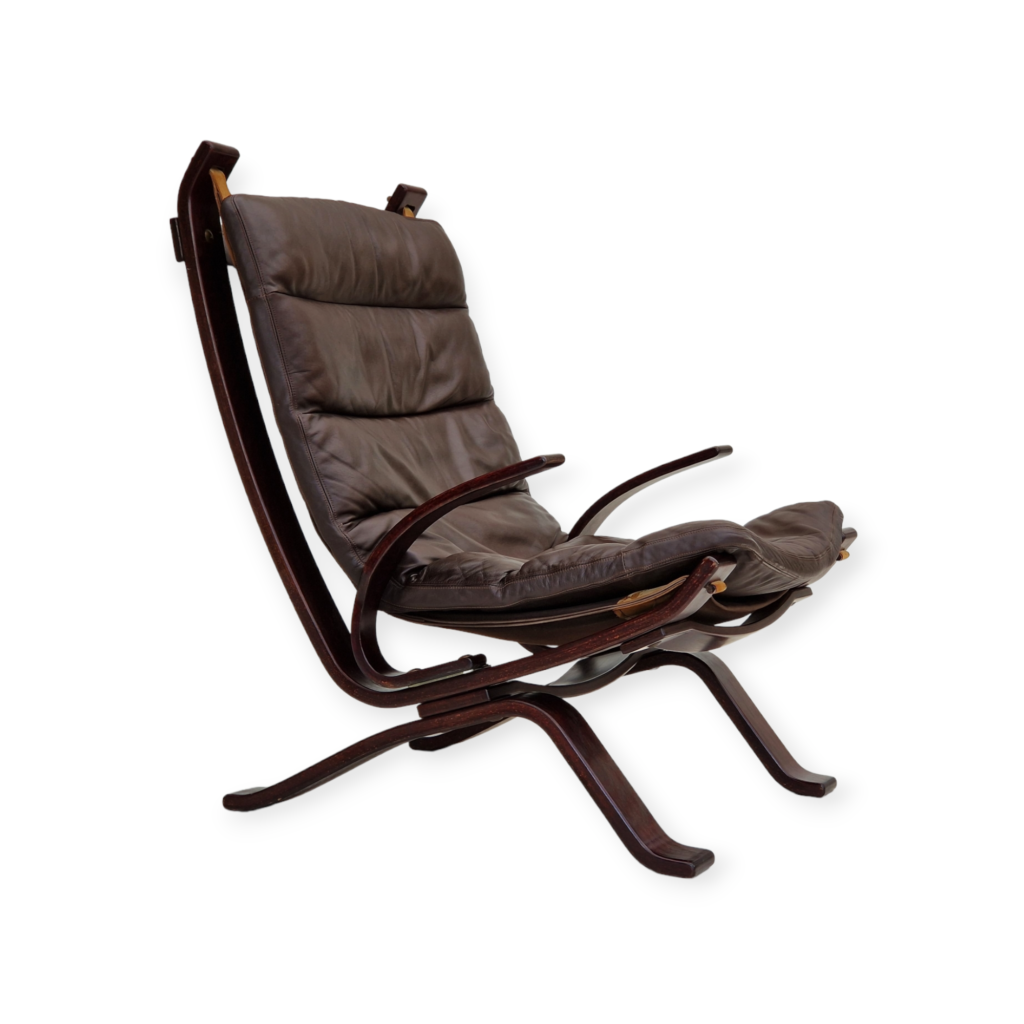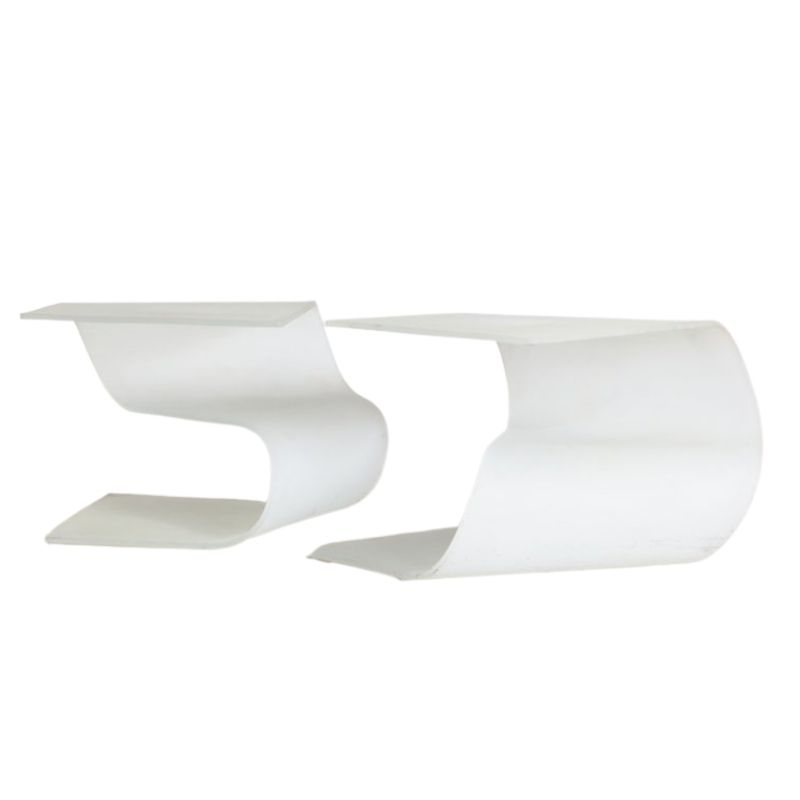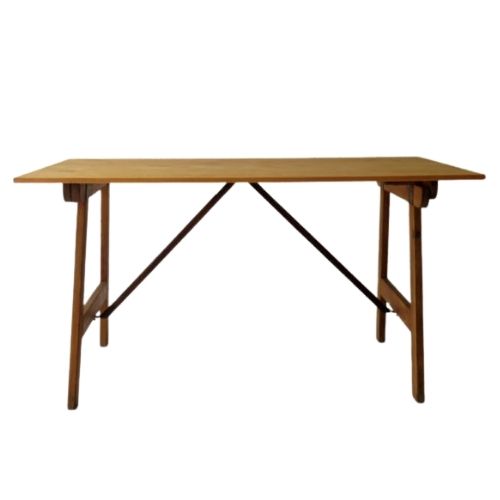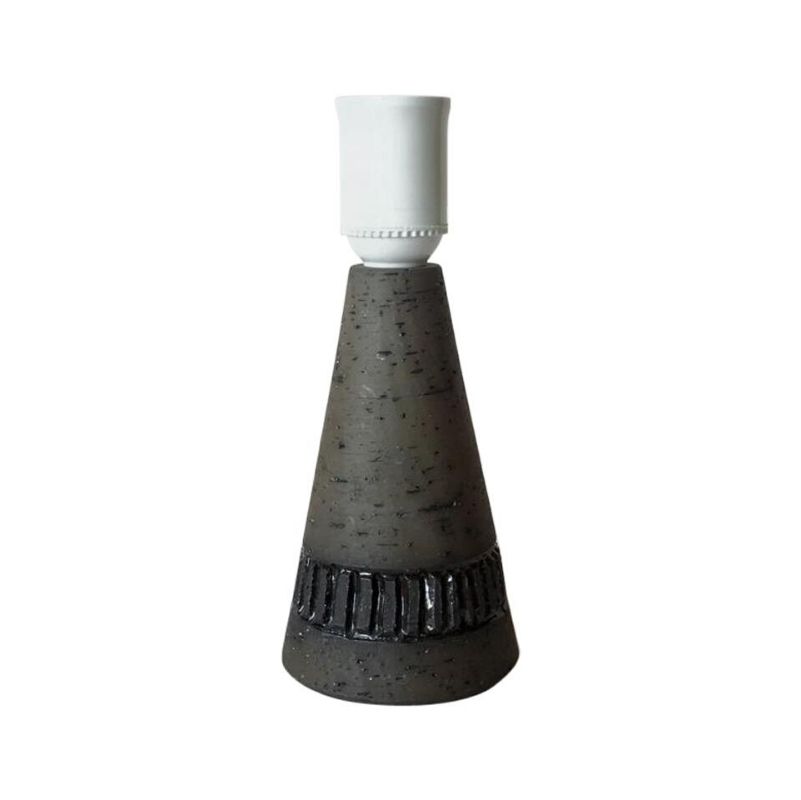The problem with prefab is...
The problem with prefab is cost. Don't believe what they will quote you. It will increase for sure. Think about it, to pay almost $400K for a factory made home plus the cost of land and permits... Also think about getting specialized financing for prefab.
There's only one person that got prefab right: Rocio Romero. You can get a $49K home (bare bones) but you will need to add windows, floor, appliances, etc. That way, it could be exactly as you want it and probably under $100K plus land. Different siding options and more. Also, since it's built on a concrete foundation, it's considered a regular built home and you can get regular financing thru any lender.
regards,
-joel
blueantstudio.com
http://www.rocioromero.com/
yes Olive
I did. I actually named the site as well.
I had been a prefab supporter for a while,before I came to the conclusion that prefabs promise is almost an impossibility. The fact is, if you are buying to save money you probably will not. Stick built is the cheapest way, and more specifically, design build is the most cost effective.
BUT, I do not discourage searching. I do agree that the LV home is perhaps the only one I have seen that seems to be transparent in their costs and affordable all at once. I will not assume these factors are Olives concern; they very well could be but we don't know. Some prefer prefab for other reasons such as a) to support the cause b) they can be rapidly built. Time is more important than money to some c) in some markets it actually is cheaper or comparable to hiring an architect and building. Very few U.S. markets are expensive enough for this to be the case.
Either way, keep us posted Olive! I'm excited for you. As much as the idea of prefab has started to make me aggravated at the real-life situations they can't solve (and are supposed to), I still sit at home and fantasize about having my own LV home ... preferably the 3 bed version on a basement foundation (perfect for mixed use: art/design/music)
Olive
Have you read "The Perfect 100K House," by Karrie Jacobs (first editor of Dwell)? It is a good read. It mainly has the standpoint of a day in her life as she travels the U.S. looking for the perfect 100K house. While it is mostly entertaining and your budget may be radically different, it does illustrate some interesting points in some places about cost breakdown on a house. Plus it explores most types of building as an option. It was funny because she seems to have come to the same conclusion as me after a few years of following the neo-prefab movement.
The one she does cite as an option is the LV home. BUT - she does not want to live in something as strictly modern and iconic. One of her main interests in the book is design build, specifically KRDB is Austin.
Anyway, it is a good book. Very entertaining to the modernist. Might have a few insights as well.
There are certainly nice...
There are certainly nice ones. It depends on what your definition of nice is. try www.fabprefab.com
http://www.fabprefab.com
Olive, you and your man seem the no stone unturned type so...
check out the BLM (Bureau of Land Management) land auctions and State Land Commission lands for sale. I haven't used either in New Mexico, so I don't know a link for you to go straight to. But BLM has land auctions from time to time in which odd parcels are being disposed of. They are usually lands off the grid. Some times quite remote. Often times they are referred to as inholding parcels meaning they are surrounded by BLM, USFS, or even NPS lands. The State Land Commission of New Mexico is another place to look. Each western state has a state land commission to manage public lands patented, titled and conveyed to it as collateral for borrowing to fund creation of its public school system during the 19th Century.
These organizations have these infrequent auctions for many reasons. Sometimes they need to raise a little cash. Sometimes it is a quid pro quo between agencies for doing a favor. Sometimes it is part of a late 20th Century policy to dissolve the interlocking land tenure between state and federal governments, sometimes it is for special interests to get ahold of certain parcels of strategic or resource worth and others are included in the auction. These lands are often accessible only by 4 wheel drive. They are not for everyone, as most persons want to be on the grid. But some of them are sometimes in stunningly beautiful locations. Parcels with close proximity to surface water resources is increasingly rare, because environmental organizations tend to snap them all up, but you might get lucky.
Olive Pt. 2
Counties also have tax lien sales from time to time in these remote areas once or twice a year. Many city people have bought odd ball parcels and then never done anything with them, because they realized the grid would never come. The parcels are held, or even forgotten about, until death, and they just kind of slip through the cracks and eventually the county liens them and then they are sold for taxes. Contact the county in the area you are interested in and ask the tax assessors office when the next lien sale will be. ask to be put on a mailing list for the sales if they have such a list.
You might get a bargain, but the real reason for considering all these outlets above is to get a good property that you like. Land is actually scarce in the west. The Federal government and the state government own any where from 70-90 percent of the lands in many western states, so even though it looks like a lot of empty space, the land tenure pattern is actually quite "occupied."
Also, in the northern part of New Mexico, you have to be aware that land tenure goes waaaaaaaaay back, so issues of who actually holds title are ever present. If I recall correctly, Santa Fe and surroundings claim to be the oldest continuously inhabited western settlement in the USA...dating back to the late 1500s. So: understand that you're moving to a small island of settlement that is actually alot older than the east where you are moving from. Ironically, many Americans from the east who are well aware of the complexities of long history of society on land title in the east forget about same in northern New Mexico.
Get good title insurance.
Olive Pt. 3
No one can really EVER unsnag the problems of title in the west. There was too much conquering and too many sovereigns and too much corruption of land transfer early on to say who owns what unimpeachably. So title insurance is the only rational solution.
Title insurance basically says, we don't know who really owns this, but we do know that 99% of the time there are no challenges and if we set our title insurance fees at X dollars, over time we can afford to make the few persons whole that get screwed out of their titles by bigger players with deeper pockets.
Note: title on the east coast, or in Europe, is not really any more clear. It is just somewhat less subject to contemporary challenge, because there has been more frequency of legal settlement and precedent over the years and the big private players have corralled more of the land into uses that are basically so entrenched that even big players can only rarely find a way to make land title challenges based on historic chains of title that are strategically feasible.
I don't actually know Santa Fe itself much better than the next tourista, but I do know just a bit about lands east of Santa Fe, through out the Sangre de Cristos, and there there are Hispanic family land holders that go waaaaaaaaay back. And everywhere you go there are at least the potential for native american land claims (as there are in the East, too).
Olive Pt. 4
In northern New Mexico, these lands have some Spanish land grant issues embedded in them, though they rarely surface and they are perhaps not quite as problematic and conflicted as those in, say, California. But still, lands with land tenure histories stretching back a couple centuries in lands that have known several sovereigns, particularly those related to multi generational Hispanic family ownership (it doesn't matter that they are Hispanic per se, just that it was Hispanic folks from Europe via Mexico that first settled the area--if you ignore the rich Native American heritage that predates them--and these families sometimes held and conveyed title over the generations in undivided interests) that can be particularly tough to unsnag when title is challenged for whatever reason.
Now 99% of the time none of this matters, because the land is of only conventional worth for say grazing or ranchette use, and everyone acts as if it is as improbable of a problem as it really is.
But if you happen to get hold of what seems like a nice, but inconsequential parcel, and then sometime down the road discover that someone wants to route a powerline right of way through it, or commence resource extraction, or a native american gambling operation arises in the vicinity, or preserve the area (i.e., an environmental org. wants to flush you out to enlarge one of the environmental holdings that they from time to time swap to energy companies for even more "precious" lands) suddenly you can find yourself with a parcel that someone may challenge the title to. And all the really knowledgeable locals know about this sort of thing, so you might as well know it too, I figure.
Olive Pt. 5
Regardless, I have spent almost all of my adult life living in the American West and, while I am neither an ardent environmentalist, nor a guns and dogs libertarian, just a middle of the roader who loves well what remains of the Western heritage, I can tell you that all who come here are changed by it. I do not know if it is a good change, or a bad change, but it is a real change.
The west is not for everyone. No place is. The nakedness of big power here is matched only by the hugeness of nature here. What passes for freedom and individualism here is only greater physical spaces between centers of tightly controlled and determined human activity.
Cities in the west are quite like cities everywhere. They have occassional renaissances and then live on obsolete images of the past for long periods.
The suburbs are even more conventional in good ways and more banal in others here than they are other places.
Corruption, substance abuse, depression and domestic violence are probably more widespread here than back east, because of the isolation and reduced intimacy that is characterstic despite the outward friendliness that is used to compensate for that isolation.
Olive Pt. 6
The Federal and state governments are MORE present and influential in the west than you ever thought possible in the East, though because of the sparsity of settlement, they seem less, at first. But EVERYONE either works for government, or has family who does here.
And yet the magnificience of the natural world here that one lives with every day, a magnificience that refuses to be as backgrounded as wonders of nature are in the midwest and east, does profoundly and irrevocably change one.
Some persons hate the change and move on quickly. Mark Twain, for one, was radically transformed by the West, but could only stand a few years of it, before heading as far east as he could get...eventually to Europe, to work off the debts he accrued living in the east. He was in my opinion far too gregarious a fellow for the West. The west has long time attracted modernist types simply because it has a severity and clarity of form that though organic, frequently borders on the abstract in comparison to other lushly vegetated places. And there are places one can go and get away from people here.
I believe the American West appeals to a particular kind of person, a kind that is no better or worse than any other, just particular. And paradoxical. Westerners dislike, distrust, or merely tolerate most forms of human organization as being unfortunately necessary, and yet at the same time have a deep yearning to belong to something real that is greater than what humanity can create.
Olive Pt 7
Religion and science and art are practiced (when they are practiced) in the West, it seems to me, as practical, worldly activities required for ordering daily life, but they always occur within the unforgettable brackets of nature here. Nature is not hidden here the way it is in the midwest and east, or coiffed and tightly bounded the way it is in Europe. You do not have to go look for it as you do in the East and Midwest and South. Or wait for it, as in weather changes. Its always here, looming in the sunlight above us in mountains, or canyons, or buttes, or mesas, etc.
Its not that this landscape forces grander, or more onerous engineering feets; nothing could be grander, nor more onerous than the engineering of nature that has been done to Europe and to America east of the Mississippi. Its just that out in the West, the vast engineering of nature is not hidden away, or forgotten as it is in America east of the Mississippi and in Europe. No western water project even approaches the hubris of the water systems that feeds New York City or that alters and supplements the water systems of Europe. No western mass transit system comes close to the byzantine tunnel web of the East or Europe, even today. Our canals don't join oceans the way they do in France. The dikes and rerouting of our rivers are small potatoes in comparison to what has been done to river systems elswhere primarily because our rivers are puny in comparison.
But we have a grandness of topography and a nakedness of that topography, so far anyway, that still subordinates even the most grandiose attempts of human engineering and development. Even our world class engineering projects like Hoover Dam, remain embedded and subordinate to the rock cliffs.
And our earth quakes and volcanoes and tidal waves and geothermal activities remind even our largest cities that mother nature is only seconds from kicking ass and taking names later no matter what we do.
Olive Pt. 8
When you come to the American West, whether its to a suburb in the Bay Area, or a chic adobe near Santa Fe, or a rusted trailer beside some road in basin and range country, or in a mountain cottage in the White Mountains of Arizona, or in a range shack in the Book Cliffs roadless wilderness area of eastern Utah, or a condo in a ski area of the Wasatch Range, or in an RV parked in the Columbia River Gorge, you never escape the sense of vastness and potential geologic cataclysm here. Its all bigger than what humans can do. Even nuclear bombs will only kill what lives. They cannot ultimately destroy but small parts of the topography itself. And the rocks in the end do not care whether they are radioactive or not. And the green glass at ground zero will one day be covered over by the next lava flow, or river flood, tidal wave.
We can and do spoil the west. We can and do improve on it. But we can't get beyond it. We can't transcend it.
I defy ANYONE to drive through the monument valley and not have their sense of geologic time irrevocably switched on, movie cliches, or not movie cliches.
Man made religion is a recent trendyness when you look east from the peaks of the Sierra Nevadas or into the Grand Canyon. I had this same experience in the Alps, but the Alps cover a rather small part of Europe and the American west encompasses fully half the USA and parts of Mexico and Canada. Its simply pervasive in a way I have not found elsewhere, though I am sure I would encounter similar, or even much greater vastness in central Asia or parts of Patagonia, but I haven't been there yet.
The Friars and priests who came to subjugate and tame California in the 1700s wound up leaving the program and inventing their own version of Christianity and of Spanish settlement. The Spanish King and the Viceroy of Mexico had finally to use massive land grants and bloodshed as incentives to break up the visionary missionaries who dared to create an idealistic Christian society (not maybe to everyone's taste, but idealistic for sure). The king and viceroy had to incentivise the destruction not only of the native american societies, but of the missions themselves, by giving land to soldiers willing to fight and undermine the missions that grew too powerful and too "religious" in alta California.
Which brings us back to land, doesn't it?
Such can be the effects of the land on the individual in the American west.
Enjoy your small plot, when you find it. It will change you in ways you will not be prepared for. Each person is changed in their own way by the west.
My wishes....
'Tis the gift to be simple, 'tis the gift to be free,
'Tis the gift to come down where we ought to be,
And when we find ourselves in the place just right,
'Twill be in the valley of love and delight.
...as borrowed from elder Joseph of the Shaker community in Alfred (Maine)1848
More prosaic thoughts...
DCW thanks so much for all of that. For certain hubby and I have been actively overturning stones and land auctions were found beneath several. They are certainly on our radar screen. The other very important issues of title, mineral rights, water right and govermental interference have also come up quite a bit. I am lucky in that an old family friend has retired in NM, a former colleague now lives in ABQ and a college buddy as well. We have folks nearby who are educating us quite a bit they have been phenomenal resources. your points about the history, religion, culture and natural vastness really hit home and are big motivating factors for us. Both of us are deeply changed by our time spent out there, especially hubby who has been there 50% of the time for the past year. He's even driving slower these days which is stunning. We feel a strong pull to go there leaving behind generations of eastern family. My family has been in the NewEngland area since the late 1600's and our idea of moving to the southwest is going to flatten the family once we do finally tell them. But as you say the change is profund, and totally inexplicable to others. I simply can't find the words. I need to go that's the only thing I can think to say.
Koen, the Shaker hymn is exactly it. As you knew I would think, knowing my connection to Shakers. Life is simpler there, clearer and somehow more meaningful. I may want a modernist home but I also want a vegetable garden and chickens...possibly goats once I learn how to make cheese.
If you need any help, please contact us at – info@designaddict.com









